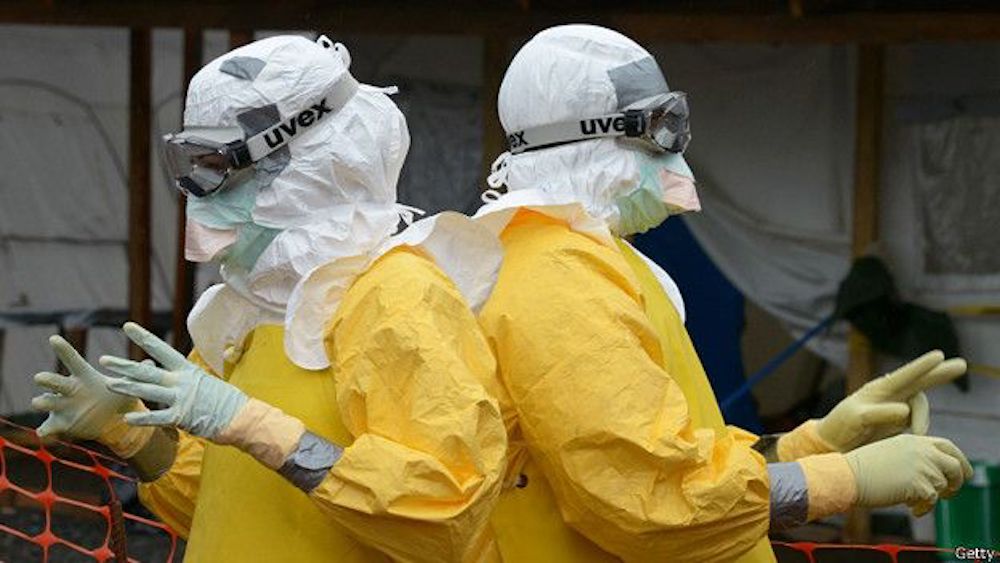In Africa, a man who contracted the Ebola virus while being vaccinated, has recovered and has put scientists on a new trail. And that, for having been the object of a relapse, almost six months later. A relapse that led to 91 new cases before his death. It is, moreover, one of the atypical cases that was described in the New England Journal of Medicine, a few days ago, to demonstrate that the deadly virus (Ebola) can remain in the body long after the end of symptoms. While noting the need for survivors to be monitored for their own well-being and to prevent spread.
Such relapses, resulting from the 2018-2020 epidemic in the Democratic Republic of the Congo, are considered rare, Dakaractu learned via The Guardian. Said English site specified, in the sense that “it is the first which it is clearly shown that it generated a large cluster of new cases”.
However, during the month of March, scientists said that a separate outbreak, currently underway in Guinea, appears to be linked to the one in West Africa that ended five years ago. It emerged from the analyzes made by them, that a survivor may have harbored the virus in silence for years before spreading it.
« The most important message is that a person can get the disease twice, and sometimes the second disease can be worse than the first. Said Dr Placide Mbala-Kingebeni of the University of Kinshasha, who participated in the research on the Congo cases. As Ebola outbreaks increase, “ we have more and more survivors And the risk posed by relapses increases, he added.
Body fluids or contaminated materials targeted as propagation factors
Ebola outbreaks usually start when a person contracts the virus from wild animals. It then spreads from person to person through contact with bodily fluids or contaminated materials. Symptoms may include sudden fever, muscle pain, headache, sore throat, vomiting, diarrhea, rash, and bleeding. The death rate varies from 25 to 90%.
The case cited above and presented in the said medical journal concerns a 25-year-old mototaxi driver, vaccinated in December 2018 because he had been in contact with a person suffering from Ebola. In June 2019, he developed symptoms and was diagnosed with the disease. For some reason, the man never developed or lost immunity within six months, said Michael Wiley, a virologist at Nebraska Medical Center who helped investigate the case.
The sick subject having relapsed was treated and was able to leave the hospital after having undergone two tests for Ebola in his blood. However, since semen can harbor the virus for over a year, men have been advised to undergo periodic testing after recovery. The 25-year-old mototaxi driver had, however, tested negative for semen in August, but did not return afterwards. As a result, at the end of November, that is 3 months after his medical treatment, he again developed symptoms and was treated in a health center and with a traditional healer. As his condition worsened, he was sent to a unit specializing in the treatment of Ebola, but died the next day.
The medical profession, which took his case very seriously, noted, thanks to the genetic tests carried out, that the virus at the origin of the new disease of the deceased was almost identical to that of his initial disease. Which means, according to the same source, it was a relapse and not a new infection from another person or animal, Mr Wiley said. Tests showed that the man transmitted the virus to 29 other people and that these transmitted it to 62 others.
A Scottish nurse and an American doctor carrying the virus
Previously, two health workers who contracted the Ebola virus while treating patients in Africa had been infected with the virus long after their recovery. It’s a Scottish nurse, in her cerebrospinal fluid, and an American doctor, in her eyes. But these relapses were discovered quickly and did not give rise to new epidemics. These people, as well as the man in Africa, were all treated with antibodies during their initial infections. Doctors now believe that these patients may not develop a strong enough immune response on their own and be vulnerable to relapses once the antibodies are gone.
A few other viruses can hide for long periods of time and cause problems later. This is the case with the virus that causes chickenpox which can reactivate itself and cause shingles decades after the initial infection.
On this subject, the expert of the virus, Mr. Wiley, tried to reassure. “The news about latent Ebola tells us ‘absolutely nothing’ about the possibility of something similar happening with Covid-19. Because, they are totally different viruses, ”he said.
Dr Ibrahima Socé Fall, a scientist from the World Health Organization, for his part, was in tune with Mr Wiley. “We have yet to see this type of latency in people who have survived the coronavirus,” he said. Even with Ebola, “after six months most patients have completely cleared the virus.”
– .

